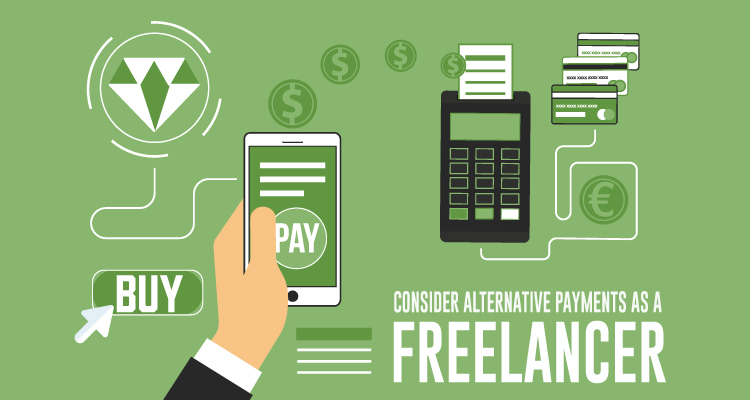When I started freelancing a long, long time ago, there weren’t many options when it was time to get paid. That’s not saying that there weren’t any options available. It just means that compared to the numerous alternative payments at our fingertips today — which includes everything from debit cards, credit cards, prepaid cards, direct debit, bank transfers, mobile payments, checks, and money orders — there were only a couple of ways accept payments from clients.
That’s why I used PayPal. I already had an account thanks to eBay, so all I had to do was send my email address and ask a client for their PayPal address. I know that there are problems with PayPal, mainly the fees and situations where they freeze accounts, but for the most part, PayPal has been pretty reliable for years.
However, despite it’s popularity, not every client uses PayPal for one reason or another. Instead of scrambling to find an alternative payment, why not plan ahead offer alternative payments in the first place?
With that in mind, here’s why every freelancer should accept alternative payments:
Table of Contents
ToggleFlexibility and Convenience
I just alluded to this. Not every client uses the same payment option that you do. By offering multiple payment options, you’re making it easier for your clients to pay you. Consequently, that means means that they’ll will pay your invoice more quickly. When you get paid more quickly, you’re increasing your cash flow.
Furthermore, newer options, such as digital wallets, allows your clients to transfer funds from their smartphone. This means that they can pay whenever they receive an invoice, no matter where they are currently located.
Speed
Thanks to digital wallets, cryptocurrencies like bitcoin, and even now, ACH transfers, money is can be sent from one party to another almost instantly. Instead of waiting several days for a payment to clear or be transferred into your account, alternative payments can take immediately. Again, this is great for your cash flow.
Cross-border Payments
We live in an increasingly global marketplace. This means it’s normal for you to accept a gig from someone in Australia, Germany, or Brazil. However, not all payment platforms work in every country. Furthermore, when dealing with global payments, there can be hefty exchange rates involved when getting paid.
An alternative payment can provide you with a more favorable advantage when you need to withdraw your funds with the higher exchange rates and lower fees. For example, Due charges a 2.8 percent transaction rate for payments – no matter where they occur in the world.
Security
With all of the data breaches that have occurred, it’s only fair that people are concerned about security. If you only accept a payment that a client has never heard of, you cannot expect that your clients will blindly pay your bill? Your customers would be more willing to pay your invoice if it’s through a payment option that they’ve heard of and they’re familiar with — and trust.
Millennials
Millennials are absolutely disrupting the payments industry because they’re not only the largest demographic in the country, which means they’re going to be potential clients, they’re also distrustful of the traditional banking industry.
In fact, a survey by Bankrate discovered that 63 percent of millennials don’t even possess a credit card.
Since they don’t have a credit card, they will need alternative payments to pay you for your services.
What alternative payments do you accept as a freelancer?

















